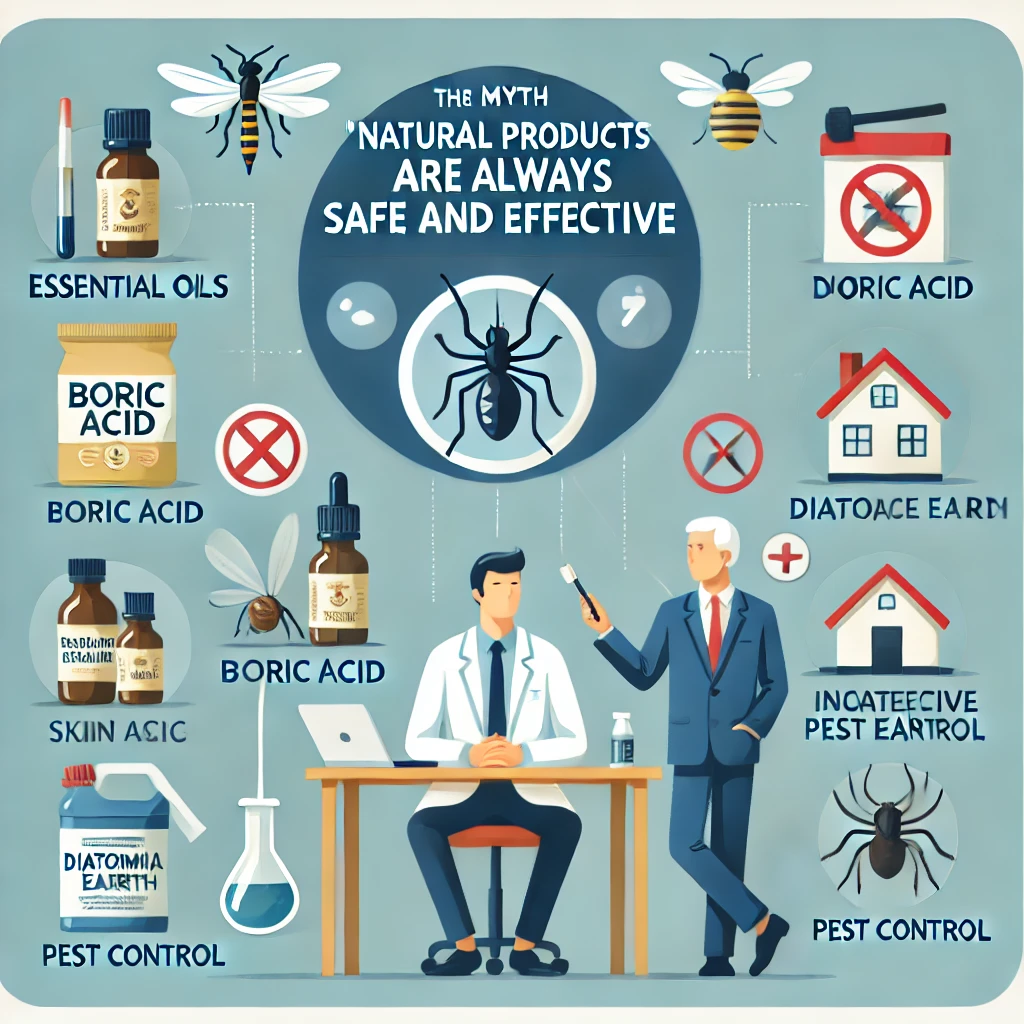
Pest control is an essential aspect of maintaining a healthy and comfortable home environment. However, the market is flooded with various products, and many homeowners believe that natural products are always the best choice because they are perceived to be safer and more effective. In this article, we will debunk this myth and provide a clearer understanding of the reality.
Reality: Not All Natural Products Are Safe or Effective
While natural products can be less toxic than synthetic ones, it is a misconception to believe that they are always safe and effective for all types of pests. The efficacy and safety of natural products can vary widely, and in some cases, they may even pose risks if not used correctly.
Limitations and Risks of Natural Products
-
Variable Efficacy: Natural products may not provide the necessary control for certain pests. For instance, essential oils like peppermint or eucalyptus can repel some insects but might not be effective against larger infestations or more resilient pests like termites or bed bugs.
-
Safety Concerns: Just because a product is natural does not mean it is entirely safe. Some natural substances can be harmful to humans, pets, or beneficial insects if misused. For example, diatomaceous earth, a natural pest control product, can cause respiratory issues if inhaled.
-
Incorrect Usage: Natural products require proper usage to be effective. Misapplication or overuse can lead to inadequate pest control and potential harm to the environment and health.
Case Examples
-
Essential Oils: While oils like lavender and tea tree oil can deter certain pests, their effectiveness is often limited and short-lived. Additionally, they must be used correctly to avoid adverse effects, such as skin irritation or toxicity to pets.
-
Boric Acid: A natural compound effective against ants and cockroaches, but it can be toxic if ingested by pets or children.
Research and Regulation
Studies have shown that the effectiveness of natural products varies significantly, and not all have been rigorously tested. The Environmental Protection Agency (EPA) regulates many pest control products, ensuring they meet safety and efficacy standards. However, some natural products may not be subject to the same rigorous testing, leading to variability in their performance.
Fact: Use Proven and Approved Products
It is crucial to use pest control products that have been tested and approved for safety and efficacy. Whether natural or synthetic, these products should be used according to the manufacturer’s instructions and recommendations from pest control professionals.
Benefits of Professional Recommendations
-
Expertise: Pest control professionals have the expertise to identify the most effective products for specific pest problems. They can recommend safe and effective solutions based on the latest research and regulatory standards.
-
Integrated Pest Management (IPM): Professionals often use an Integrated Pest Management approach, combining multiple strategies (biological, cultural, physical, and chemical) to manage pests sustainably and effectively.
-
Safety: Professionals are trained to use products safely, minimizing risks to humans, pets, and the environment.
While natural products can be part of an effective pest control strategy, it is a myth to believe they are always safe and effective. The efficacy and safety of any pest control product depend on its proper use and the specific pest problem. It is essential to rely on proven and approved products and seek professional advice for comprehensive pest management.
For more information on pest control and to find safe and effective solutions for your home, contact Eco Fauna Pest Control. We are committed to providing you with the best pest control services, using both natural and synthetic products as appropriate to ensure the safety and comfort of your home.
